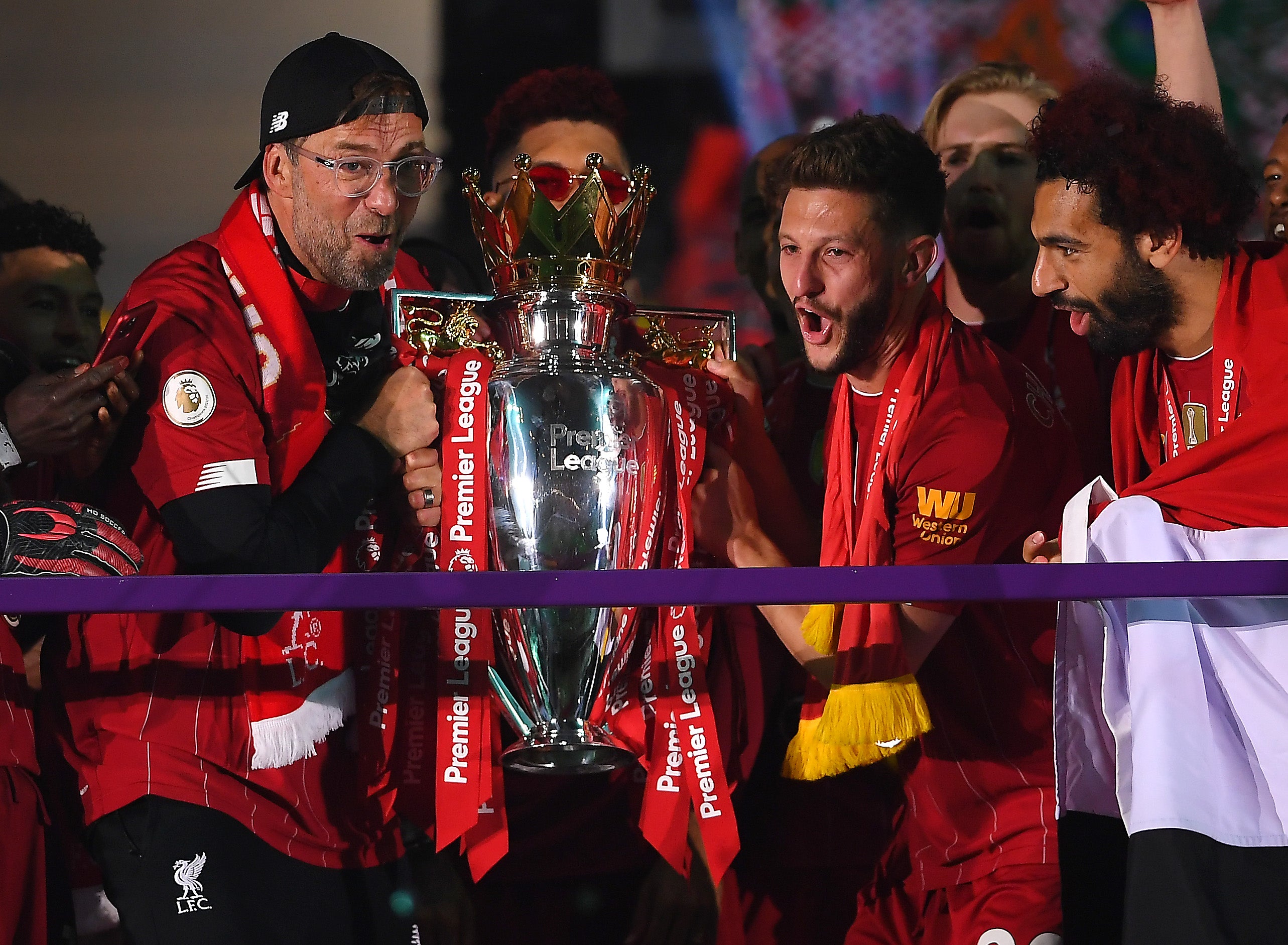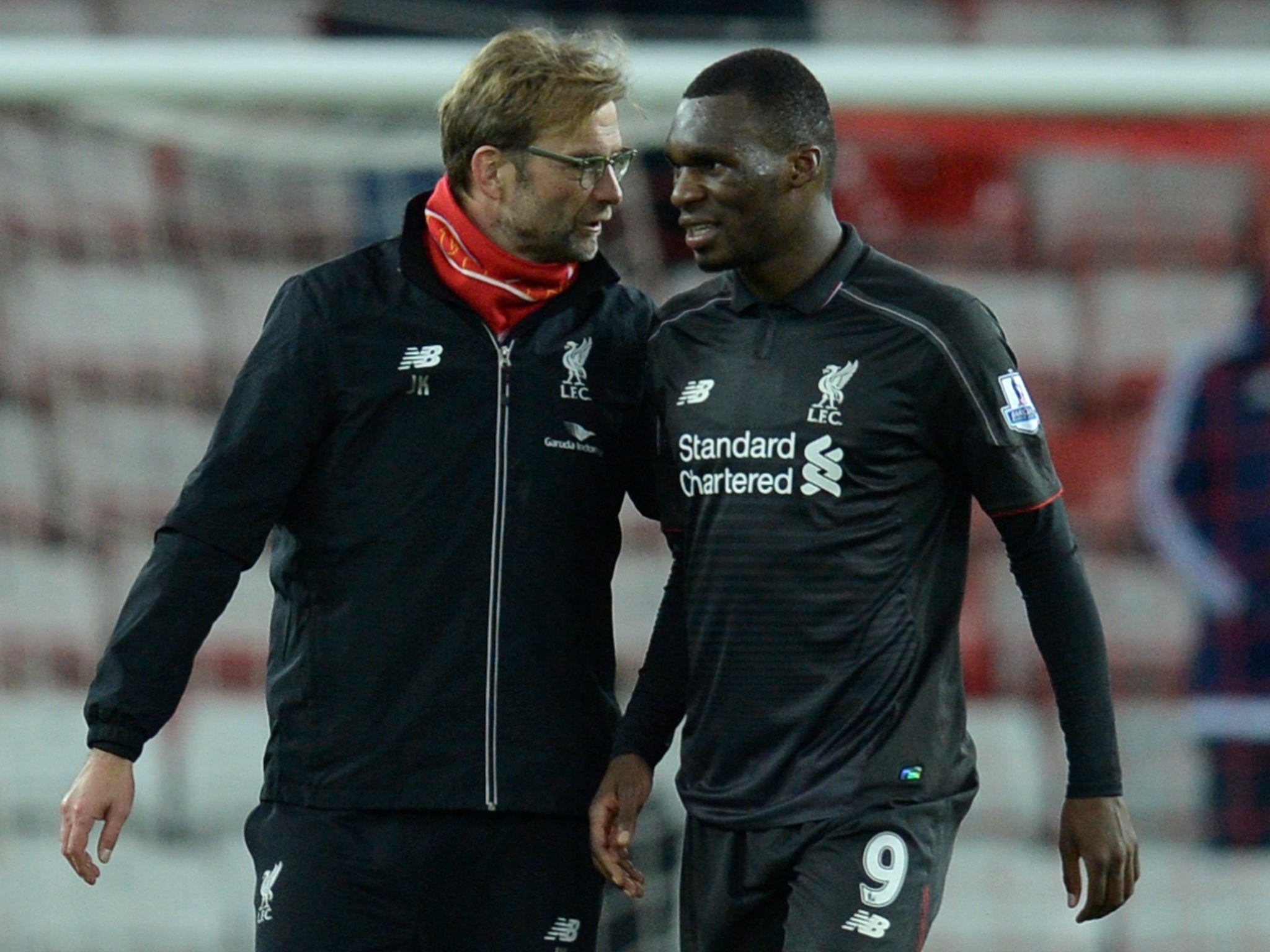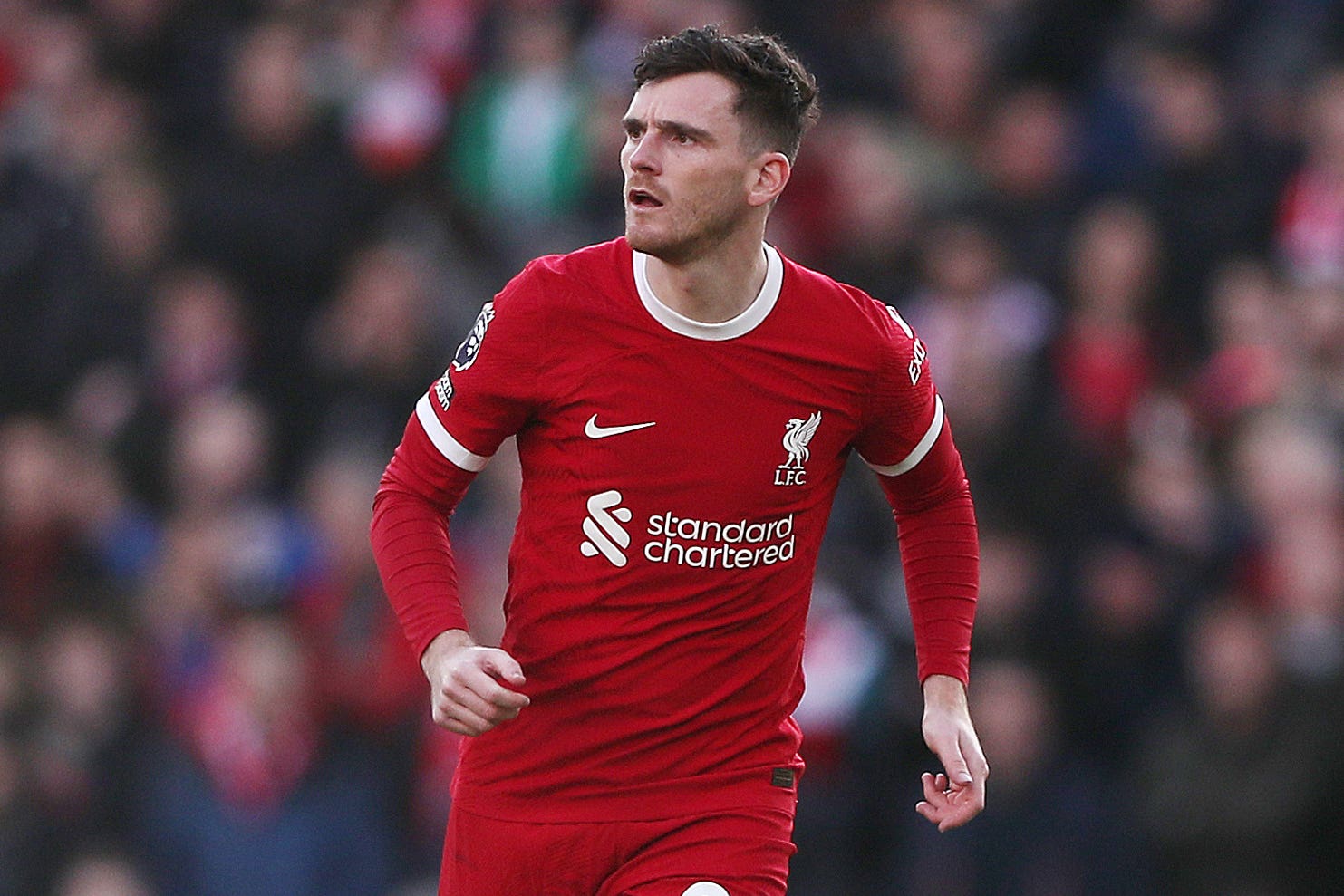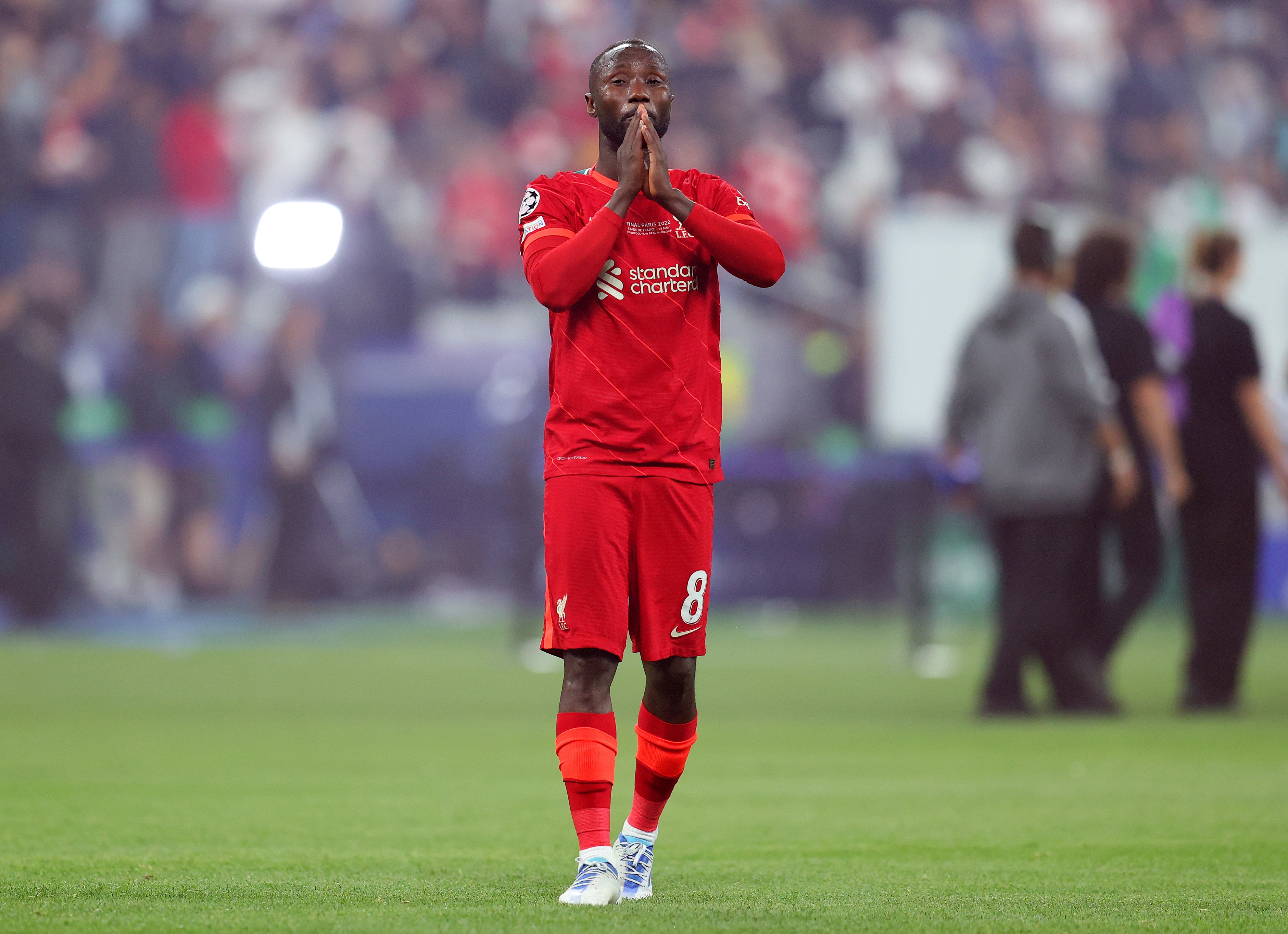The Independent's journalism is supported by our readers. When you purchase through links on our site, we may earn commission.
How a data ‘nerd’ helped Liverpool win the Premier League
Liverpool’s former head of data, Ian Graham, has written a book about his time at the club – and how the Reds sliced through Man City’s dominance to claim domestic glory

Your support helps us to tell the story
From reproductive rights to climate change to Big Tech, The Independent is on the ground when the story is developing. Whether it's investigating the financials of Elon Musk's pro-Trump PAC or producing our latest documentary, 'The A Word', which shines a light on the American women fighting for reproductive rights, we know how important it is to parse out the facts from the messaging.
At such a critical moment in US history, we need reporters on the ground. Your donation allows us to keep sending journalists to speak to both sides of the story.
The Independent is trusted by Americans across the entire political spectrum. And unlike many other quality news outlets, we choose not to lock Americans out of our reporting and analysis with paywalls. We believe quality journalism should be available to everyone, paid for by those who can afford it.
Your support makes all the difference.There are ways of introducing yourself to Jurgen Klopp. Running through the defeats that took his Borussia Dortmund team to the foot of the Bundesliga, 18 months after they had been Champions League finalists, may seem among the more unorthodox. For Ian Graham, Liverpool’s former director of research, there was method to the apparent madness.
“I was nervous,” he said. “My guess was his personality was just for the cameras, for the media, but it is really not. He just doesn’t have a filter, so how he would speak to you is exactly the same as how he would speak to me or some guy on the streets he had met. He is very enthusiastic and emotionally engaged.” So Graham discovered, as he delved into the seemingly dry topic of the expected goals of various shots in matches of Klopp’s awful autumn of 2014.
“I think the first was against Mainz. His response was, ‘We f***ing destroyed them in the game, did you see it?’ He clearly had the image of the chance they missed,” Graham recalled. “I could not believe it. ‘They score this goal eight times out of 10!’ Yeah, that’s exactly what expected goals says. The second game was, ‘Oh, f***, we were so unlucky in that game, I cannot believe it.’”
And if it creates an image of an animated Klopp in a Melwood office, still as annoyed by losses a year later, it helped forge an understanding. “That was a really nice way in,” Graham said.
“It was a way for me to say, ‘Hey, Jurgen, we think you’re great and when [German newspaper] Bild was saying you were rubbish, we still thought you were great – you were just unlucky.’” Graham’s numbers showed that, even in a year when Dortmund finished seventh, they were still the second-best team in Germany.
If Liverpool’s rise under Klopp consisted of the emotional underpinned by the statistical, at their best, they won the numbers game. Klopp is a people person: “Jurgen does not like to look at tables of statistics; coaches are visual thinkers, he likes to look at videos, he likes to look at the stories of the player, he likes to know what their motivations are, in a very emotional way.”
But intelligent use of the data helped them acquire an excellent record in the transfer market and to – at one stage – win 35 of 36 league games. “We have demonstrated it can be used to get more performance for a lower amount of money,” said Graham. His new book is entitled How to Win the Premier League. It could have also been called How to Win the Champions League.

The initial lessons, however, were of how not to win the Premier League. There was a time when Liverpool’s transfer committee acquired infamy, when Brendan Rodgers was sceptical of the advice given by men such as Graham and his close ally Michael Edwards. “Brendan wasn’t open to the idea of stats, and I have some sympathy with that,” Graham said. Rodgers had wanted to sign Tom Ince, while Graham and Edwards wanted Philippe Coutinho. History offers a verdict on who was right.

A revolution can have winners and losers, even if it isn’t quite as simple as that. “The war between the nerds and the proper football men is a bit of a caricature,” Graham said. “That’s not to say there weren’t clashes.”
The 18-month period before Klopp’s appointment brought two striking signings that highlighted the lack of unity at Anfield. When Luis Suarez left, Alexis Sanchez – everyone’s top target – opted for Arsenal instead. “Then we had target No 2, which we disagreed with Brendan on; target No 3 was Brendan’s choice that we didn’t want to come to the club; so, by the time you get to the end of August and we didn’t have any strikers, Mario Balotelli was eighth or ninth on our list.” Balotelli scored one league goal and was replaced a year later by Christian Benteke, who also did not fit the system.

Klopp brought a clarity of thought; square pegs went in square holes. Liverpool knew who not to sign. “One of the advantages of working with Jurgen was we knew exactly what was required from each role,” Graham said.
It is why Andy Robertson became an emblematic buy, and not merely for his £8m price. “Jurgen had the realism to say that even Liverpool, because we didn’t have infinite reserves of money, had to make some compromises on players,” Graham said. Robertson ranked third on the list of left-backs identified, but Manchester City could outbid Liverpool for Benjamin Mendy, and Emerson Palmieri got injured. The Scot’s statistical profile was mixed. “I was really not certain of Robertson’s defending when he arrived, and it was Jurgen who said, ‘My full-backs have to attack, we can fill in for his defence,’” Graham recalled.

Klopp’s brand of front-foot football made it imperative they bought a certain type of centre-back. At £75m, Virgil van Dijk became the most expensive in the world. He would not have stood out, Graham thinks, so much in another side. “Virgil playing in a [Tony] Pulis team, you might not see the best of Virgil, because a lot of his assets just aren’t being used in a low-block team.”
Edwards famously persuaded Klopp of the merits of his best attacking buy. For team-building, however, they did not want a second Mohamed Salah. “We tried to look for complementary strengths, so if you have got a striker like a Mo Salah who is getting off [an average of] four shots per game – it is only the world-class forwards that can get off four shots a game – having another striker who is really shot heavy, you don’t get eight shots from those two strikers,” Graham added. “If we brought [Robert] Lewandowski in, he would use chances that Salah would have had if Lewandowski wasn’t on the team.”
Amid a period where Liverpool had a near-perfect record in recruitment, there is the odd anomaly. Graham is open that he was the biggest champion of Naby Keita. “I love Naby,” he said. “He was the best defensive midfielder in Austria, then the best attacking midfielder in Austria, then the best attacking midfielder in Germany. And all that by the age of 23. I thought we were signing a better version of N’Golo Kante, and when he played, he was not quite as good as I thought he would be. I thought he was going to be the best player in the world.”

Injuries and the reliability of Milner and Gini Wijnaldum, which made them invaluable for Robertson, counted against Keita in the end. “My view was we need a surprise in midfield and Naby was that surprise,” smiled Graham wryly. “But he was surprising the coaches more than he was surprising the opposition.”
Keita may go down as a misstep but, as Liverpool begin life after Klopp, they remain the one team to deny Manchester City the Premier League title in the last seven seasons – built on the laptop as well as on the pitch. A triumph of bespoke software as well as Gegenpressing.
‘How to Win the Premier League: The Inside Story of Football’s Data Revolution’, by Ian Graham, is available to buy on Amazon and in bookshops from Thursday 15 August.




Join our commenting forum
Join thought-provoking conversations, follow other Independent readers and see their replies
Comments